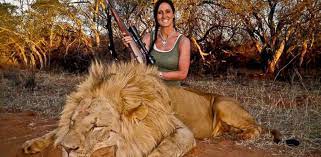Back in 2019, the conservative government passed a law banning the import of trophies from animals hunted abroad.

Despite their status, various wild species are hunted in the wild and in theory this law would stop this.
Now, you might notice that it is now almost 2022, so what happened? Well it was announced in 2019 queens speech but has not been brought forwards by the conservatives who are currently in power (and suggested the law in the first place). Worryingly, they have not actually announced a timetable of when they will try to enact this law! Given it has been 3 years before they announced it, no firm timetable being in place would suggest that this is still not a certainty. Delay is particularly concerning, as many Conservative supporters are wealthy, so it is reasonable to think that wealthy donors are the reason that this law is taking so long to come into place.
Since the law was suggested, more than 300 trophies from endangered species have been imported back into the UK. Given the plan is only intended to be implemented in the summer, as much as another hundred animals will die before this plan goes into action.
This current move was prompted by the shooting of Cecil the Lion in Zimbabwe back in 2015.
Now, we need to be careful with this. An all encompassing ban for hunting could do more damage than good. There are a significant number of places where animals are hunted in a totally sustainable way. I am thinking of lion within the Selous – currently 1% are taken each year on average. Even taking into account the animals that might be killed as new males take over the pride, this is well under 5% – a manageable number. Similarly, the Sierra de Culebra allows a small number of its wolves to be hunted each year, meaning that the rest of the population is protected – and this is where the last refuge of the Iberian wolf survived, and then as pressures reduced allowed natural regeneration to a population of around 2500.
In most parts of the world, there is no need for hunting. It is reasonably easy for travellers to visit, and with imagination and some investment, sustainable ecotourism can provide more money over the long-term as well as more jobs to the local area (often these reserves are remote so other forms of employment are few and far between).
Should we have a blanket ban? I do not think so. The idea of hunting is disgusting to me, and in almost all situations the so called “hunter” has a professional hunter behind them, so that if they mess it up, there is no danger – the idea of it showing bravery is insane. However, there are many places in the world where parasites or illness means few casual travellers will visit.
I would hate to see an ecosystem like the Selous lost, and the 5000 lions that live there killed.
Now would I ban importing trophies from South Africa? Yes, straight away. There are no illnesses to keep people away, and photographic safaris make healthy incomes for people there. Furthermore, as the situation in Mozambique and Zimbabwe has declined hunting outfits have been buying up rights to kill animals there. Furthermore, South Africa is home to many lion breeders – animals bred simply to be hunted, often in small areas, and within weeks of being set free. This is of no benefit to the wild population. Some would argue that this canned lion hunt reduces the desire for wild lion hunting, but it is quite clear that this is not the case.
